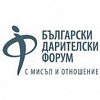Does the decision to extend restrictions for Bulgarians and Romanians make sense?
Zvezda Vankova is a program coordinator and researcher at the Law Program of the Open Society Institute Sofia and is currently a PhD candidate at the Law faculty of the Maastricht University in the Netherlands. Her areas of professional interest include migration policies, asylum and free movement of persons, human rights protection, police reform and accountability. Recently, she was the national expert and coordinator of MIPEX III for Bulgaria and implemented independent monitoring in the Detention centres for irregular migrants in Bulgaria.
As the latest research by Open Society Institute shows, it is mostly internal factors and not external barriers that influence the decision of A2 workers to migrate.
The report indicates that the big waves of outward migration from Bulgaria had already happened before the EU membership and that there is currently little real incentive for Bulgarians to migrate. This is further substantiated by the fact that the number of migrants coming to the UK from Bulgaria is slowing down.
In fact extending transitional measures makes little sense, since they are unlikely to restrict migration but only keep a greater number of Bulgarians and Romanians on the illegal labour market – argument stressed by the European Commission and the JCWI. EC report also points out that net inflow from both countries has been very limited or has decreased following the opening of the labour markets of some of the EU members.
For example unlike the UK Italy abolished the transitional restrictions for Bulgarians and Romanians as of 1 January 2012, even though it is one of the two main destination countries for these workers.
Understanding the trends
In the past internal factors such as large differences in salaries, lack of social support and public service provision, as well as high unemployment and lack of opportunities, were the main reasons behind the emigration of Bulgarians. This mostly coincided with the period of severe economic crisis in the 1990s, which motivated Bulgarians to leave the country and look for employment elsewhere.
After the period of recession the Bulgarian economy gradually improved. New jobs were created, while income and living standards increased which led to a slowdown in emigration. At this point the average annual emigration marked a 28% decline.
According to the latest national survey data of OSI looking into migration patterns - only 4,7% of the interviewed Bulgarians who have been abroad in the past 20 years had spent more than 3 months in the UK.
This decline was marked despite the fact that visas for Bulgarians in the UK were abolished when the country joined the EU.
Considering that only 11% of all Bulgarians willing to emigrate would choose UK as their destination of choice, fear that Bulgarians would start flooding the UK labour market if transitional restrictions would be lifted seems further unfounded. In that respect the UK ranks only forth after Germany (18,2%), Spain (15,5%) and Italy (13,6%).
Another great public concern is emigration of Roma to the UK for the purpose of claiming social benefits. This is rather a result of media overexposure of individual incidents and is not an evidence based trend. OSI's nationally representative survey of the Roma community in Bulgaria shows that only 12% of the interviewed Roma and 16.5% of the members of their households have worked abroad in the last 20 years.
84.2% of Roma and 73% of the Bulgarians, who had spent time abroad in the last 20 years, have done so in order to work. This means that employment is even more important reason for emigration among the Roma community than among the Bulgarian population. It is also important to stress, that the UK ranks ninth among the preferable destinations for Roma emigrants and is lagging behind Greece, Germany, Spain, and Italy which are the most desired destinations.
Източник: Migrants' Right Network
Сходни публикации
Промените в правилника на Фонда за лечение на деца затрудняват достъпа до лечение
И отново за Петър Москов и Фонда за лечение на деца.Вчера министърът е казал, че "Според новите правила от приемането на докумен

Национална мрежа за децата изрази становище по проект за изменение на Правилника за дейността на „Фонд за лечение на деца“
Национална мрежа за децата се присъединява към изразените от редица родители, родителски и граждански организации

БДФ с отворено писмо до гл. редактор на в. „Труд" Петьо Блъсков
БДФ написа отворено писмо до главния директор на в. "Труд" Петьо Блъсков във връзка с публикувания на 21.04.2016 г. коментар